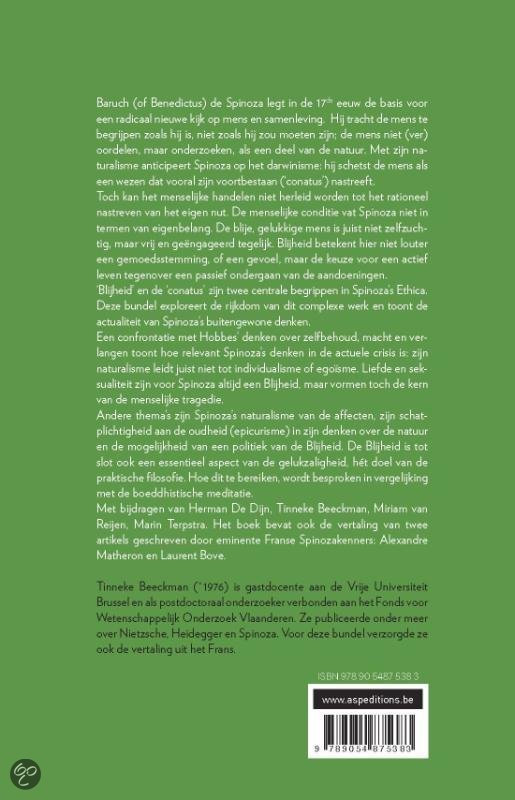
Whilst I acknowledge the affinities between the two thinkers and their criticisms of Stoic teaching, I maintain that it is an error to seek to construe Nietzsche and Spinoza as having an identical teaching on the passions. After a consideration of his relation to Stoic teaching I then examine his relation to Spinoza on the emotions or affects. ) living results for him in a petrified of life devoid of movement and growth. If for Nietzsche the Christian mind-set involves a disturbing pathological excess of feeling, the Stoic way of (. To illuminate his position, I focus attention on examining his relation to Stoic teaching on the passions. My focus is on illuminating Nietzsche on the passions in relation to his primary teaching on self-cultivation. ( shrink)Īlthough the literature on Nietzsche is now voluminous one area where there has surprisingly been very little research concerns Nietzsche on the passions. I conclude with an analysis of vacillation of mind in Deleuze’s Spinoza, and place Deleuze’s thoughts on this note in conversation with his earlier reading of Nietzsche. I appreciate and assess multiple aspects of Macherey’s critique while nonetheless arguing that they do not prove damning for Deleuze’s affirmationist picture. An ‘optimistic’ appraisal of these features might lead one to Deleuze’s affirmationist project, while Macherey’s pessimism concerning the two might take a Spinozist politics in quite the opposite direction. I argue that the disagreement between Macherey and Deleuze is not merely interpretive, but rather indicates some of the stakes involved in assessing Spinoza’s theory of the passions and the imagination.

I thus focus on Gilles Deleuze’s proposed answer to this problem as well as Pierre Macherey’s critique of Deleuze’s reading. ) to come to terms with how exactly the passage from passion to action is made in the Ethics while locating this particular problematic as a site at which various interpretations of Spinoza diverge with considerable stakes. The passage from the first to the second and third types of knowledge, however, remains, in Spinoza’s text, rather obscure. In other words, we remain passive in the first type of knowledge, but come into our power of acting in the latter two. Of these, imagination is necessarily inadequate while the latter two are necessarily adequate.

Spinoza’s Ethics makes reference to three kinds of knowledge that humans are capable of winning: imagination, reason and intuitive knowledge of God. In order to illustrate the similarities between Spinoza’s philosophical use of love and that of his predecessors, I will address salient features of Plato’s and Aristotle’s thought, emphasizing the relationship between love and ethics, as well as the nature of the philosophical impulse.

Moreover, by culminating his ethical theory with such a concept, Spinoza is placing himself in a rich tradition of thinkers who develop epistemological and ethical systems that put love (either as eros or philia) as the backbone of their philosophy. ) discusses three kinds of love: passionate love, friendship and the intellectual love of God.The intellectual love of God is nothing but a necessary outcome of Spinoza’s rationalistic project as a whole. It has been argued that this concept is somewhat alien to the main tenets of the Ethics, especially since it is reminiscent of more orthodox religious relations to God, and has a certain mystical (and so, nonrational) quality.In this paper, I will show that it is a consistent development of Spinoza’s interconnected and elaborate theories of knowledge and the affects.

One of the most famous and identifiable of Spinoza’s ideas is his amor Dei intellectualis (the intellectual love of God).


 0 kommentar(er)
0 kommentar(er)
